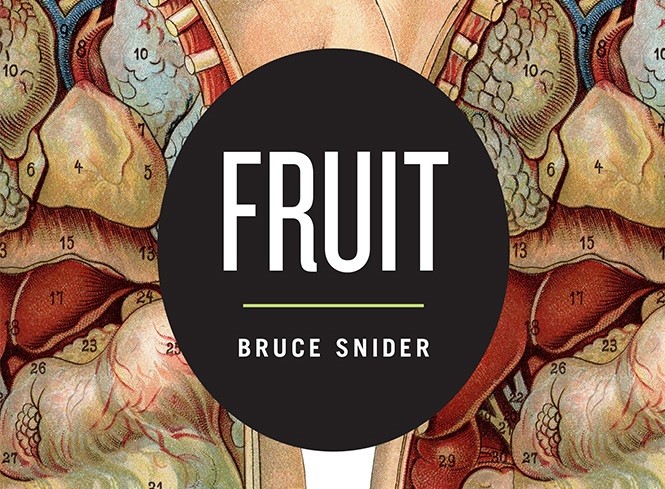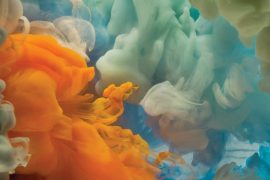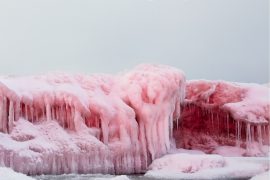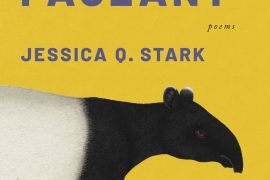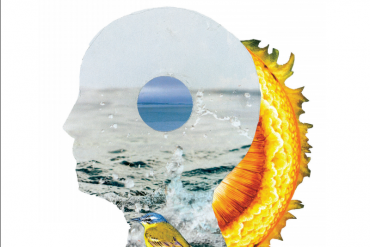Bruce Snider’s new collection Fruit, winner of the Four Lakes Prize in Poetry, turns and turns again around the subject of being childless, of what a child is, and what a child may represent in the world. His rich and often surprising explorations lift and look under the cultural stones of religion, literature, camp, and science to see what usually remains out of view.
In the poem “Chemistry,” Snider begins:
From the middle, Dutch boele, which
means lover, bully was a term
of endearment, in the sixteenth century,
Excavating etymology, he explores the linguistic parallels between words and the body’s response to them both past and present:
and exclaim: my bully, feeling
adrenaline flood his body as his heart
rate tripled and his palms began
to release water mixed with urea,
ammonia, salt. Essentially,
he could feel what I felt…
My excerpts don’t do the poem justice as a whole. Snider’s poems are seemingly unseamed; they appear to have sprung from the poet fully formed like Athena from the skull of Zeus. This is due to Snider’s meticulous crafting, disparate subjects coming together with ease. The reader is buoyed from one discipline or era of time into the next without snag or bump. Only looking back is a reader suddenly surprised they have leaped ahead “four centuries later.”
Craft goes beyond form in these poems, though Snider knows his received forms well: “Twin Peaks Bar, San Francisco” (villanelle), “Shelter” (crown of sonnets), “Frutti di Mare” (sestina), and “Territory” (ghazal). The craftsmanship of the poems is evident in their sonics and musicality controlled by their exactly chosen words. As in “Why My Father Smells Like the Night”:
…His cologne
filled the house with its cheap
drugstore worry. Whiff
of bacon. Whiff of spade-
split turnip. When his brother
died, he cried for days. Because
the world clung to him, spit
sticky and grease fire…
This poem brims with the speaker’s anxiety about their father, the possible breaking out of violence at any moment. All of this is done with precisely chosen details, the sound of the words underscoring the potential threat in every line, “spade-split turnip,” “spit sticky,” etc. Almost every poem in this collection couples exacting detail with sonics that reinforce what is being shown.
As with Snider’s previous book Paradise, Indiana, Fruit visits again and again the complicated twining of masculinity and violence, of the fine line between care and domination. In his poem “Homo,” set in The Hall of Human Origins, Smithsonian Museum of Natural History, the speaker wanders the exhibit seeing how the archeological remains of humanity’s history are bound up with doing violence to one another. Snider has so many remarkable linguistic moves in his book, but this poem contains one of my favorites. The male speaker and his male lover observe a hand-axe that has cut an early hominid’s spine. Toward the end of the poem, amid the historical displays of violence, the speaker and his lover demonstrate that men are also capable of more, “[a]ll morning we walk hand in hand” learning to make another kind of fire.
These poems, though they move through complex ideas and the vast fields of human knowledge, are always grounded in their exquisite details. In “Litany for My Father’s Sperm,” the reader is catapulted from one reference (Delphi) to the next (biblical Job) to the next (Big Bang). Yet, Snider grounds or re-collects his readers with gestures toward the everyday, “It would have loved peanuts,” or “little Winnebagos.” The poems truck into new territories, always letting the familiar objects and details of life and landscape go with them. Snider’s poems speak intimately to their reader, inviting them to draw ever nearer to the page. In “Heaven and Earth,” a poem exploring cartography and the mapping of the human genome:
I guess maps even stop us
from getting lost in our own bodies, wanting
as we do to name everything, Adam
pointing giraffe, zebra, mongoose.
Now we’re naming the animals
in ourselves—
At its core, Fruit centers on the figure of the child—familial, longed-for, absent, imagined—to help us come closer to understanding what it means to navigate our futures and what, if any, legacy we may leave behind. For all of this collection’s burgeoning life, it remains intimately bound up with death. Ultimately, Snider’s poems remind readers that for something new to come into the world, something else must make room for it. From “The Blue Whale Has the Largest Heart of Any Living Creature”:
If a boy stood in a blue whale’s heart,
he could make a silence of its beating, a roof
of its speed, a floor of its gentle nature.
What continues to devastate me and compel me about Snider’s work is that these gestures happen simultaneously. The love of men is always grounded in the knowledge of its history of violence and domination. The desire for a child of one’s own is tied to the inevitable reality of environmental degradation and species extinction. Even the decision not to have a child—for selfish reasons, devotion to one’s mate, to improve one’s carbon footprint—is underscored by the worry of how one will be remembered or have some form of continuation after death. Snider never shies away from the complex, often painful/joyful hours that make up our days.
Fruit is the heightening of an already mature poet’s reach into the new terrain. You will want to read this book once for pleasure, again for an eye to the dazzling language, and once more to take in how beautifully these poems are built.

